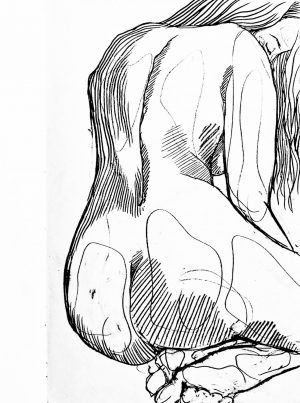SHAG: Creating a space for sex positivity on campus
October 3, 2019
Amid the bustle at Jewett Café, the members of Whitman’s Sexual Health Advocacy Group (SHAG) gather to discuss all things sexual health and sex-positivity every Thursday.
Senior philosophy major and SHAG president Madison Botzet explains that SHAG formed last semester when Botzet and another member of Whitman’s Planned Parenthood Generation Action (PPGA) decided to form a group specifically focusing on sexual health education on campus, without having to follow the structure of being an affiliate of Planned Parenthood.
“We decided that Whitman’s campus would be better served by our own sort of iteration of a sex-ed club because, since we had this external affiliate [of Planned Parenthood], there were stipulations on the kind of sex-ed we could do. It was really great to have Planned Parenthood as our backing and our supporter for doing reproductive rights workshops and that can kind thing, [but] we felt sort of limited,” Botzet said. “We want to be able to say exactly what we want to say and not feel any sort of boundaries or confinements by this external entity.”
Although Botzet is SHAG’s president for all intents and purposes, all club members are involved in group decision-making.
“We sort of wanted to move away from hierarchical leadership positions and just say we’re the leadership team,” Botzet said.
Botzet explains that the education SHAG is trying to provide for the community fits well with the work that is already being done by Green Dot, a sexual assault awareness and prevention group that is active on campus.
“Green Dot is focused mostly on consent, which is a really important part of having sex and being sexually active or just existing on this campus. SHAG is focused more on sex-ed, as in like: how can we pleasure ourselves, how can you pleasure other people [and] talking about things that are more taboo like masturbation or alternative forms of sex or relationships,” Botzet said. “I think they sort of coexist really well together because [Green Dot] is focusing on consent — which is a huge part of having sex — and we are focusing on all these other things related to that.”

Last spring, SHAG produced a zine of student art and poetry under the theme of sex and body positivity.
Clara Collins, a senior English major, was one such contributor who submitted an original drawing.
“I really like making art that incorporates body positivity and different body types, and that kind of, as I’m sure for most people, has been something I’ve come to terms with in my life or thought about quite a bit growing up,” Collins said. “I think having more open dialogues about body positivity and just having more representation of different body types in any kind of media is always a good start to changing that narrative.”
Botzet, along with the other group members, is brainstorming many ideas for the future of SHAG.
“This semester, our goals are to do sex-ed workshops in the first-year dorms, fraternities, sororities — basically any place where we can get people to congregate, and I think those are pretty easy access points,” Botzet said. “And then we’re thinking of doing an open mic night and maybe a lube-making workshop.”
Botzet explains that the group hopes to destigmatize the taboos surrounding sexual health and pleasure.
“We have our meetings outside of Jewett, and we’re talking about penises and prostates and all of this stuff, and people are walking by and picking up on these conversations,” Botzet said. “You can tell they might be a little uncomfortable, but that’s kind of the point — is that we’re talking about these things and making it more socially acceptable to have these really important conversations.”
Lucy Harper, a senior psychology major and SHAG member, explains the group’s emphasis on discussing sexual pleasure.
“It’s important that [sex] is done in a healthy, safe and fun way — and emphasizing the fun especially because I remember in middle school when I was in health class it was more aimed towards abstinence,” Harper said.
While not downplaying the importance of safe sex, Botzet and other group members are trying to provide another narrative than may have been discussed in students’ previous experiences with sexual health education.
“I mean obviously STIs and those kind of things are very real and people need to be aware of them, but also we recognize that most of the sex-ed, if people got sex-ed, was pretty negative and scary,” Botzet said. “So we’re trying to focus more on ways to have safe, fun, pleasurable, positive experiences.”




